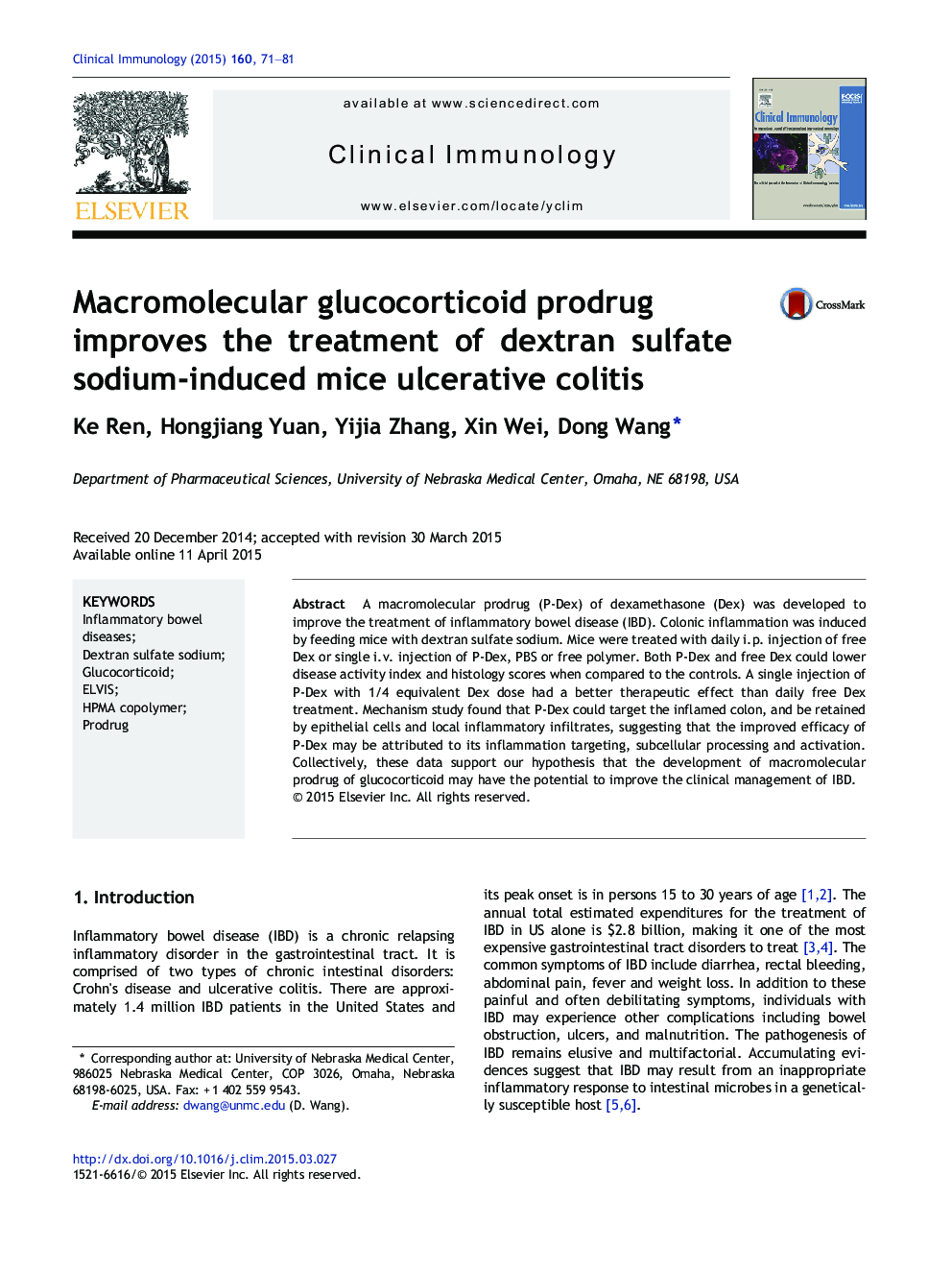| Article ID | Journal | Published Year | Pages | File Type |
|---|---|---|---|---|
| 3256831 | Clinical Immunology | 2015 | 11 Pages |
•Macromolecular prodrug of dexamethasone (P-Dex) was tested in an IBD mouse model.•P-Dex is more effective than free Dex in the treatment even at 1/4 dose equivalent.•P-Dex was found to passively target ulcerative colitis lesion.•Cell-mediated sequestration is responsible for P-Dex' retention at the lesion.•The improved efficacy and safety of P-Dex may be attributed to ELVIS mechanism.
A macromolecular prodrug (P-Dex) of dexamethasone (Dex) was developed to improve the treatment of inflammatory bowel disease (IBD). Colonic inflammation was induced by feeding mice with dextran sulfate sodium. Mice were treated with daily i.p. injection of free Dex or single i.v. injection of P-Dex, PBS or free polymer. Both P-Dex and free Dex could lower disease activity index and histology scores when compared to the controls. A single injection of P-Dex with 1/4 equivalent Dex dose had a better therapeutic effect than daily free Dex treatment. Mechanism study found that P-Dex could target the inflamed colon, and be retained by epithelial cells and local inflammatory infiltrates, suggesting that the improved efficacy of P-Dex may be attributed to its inflammation targeting, subcellular processing and activation. Collectively, these data support our hypothesis that the development of macromolecular prodrug of glucocorticoid may have the potential to improve the clinical management of IBD.
